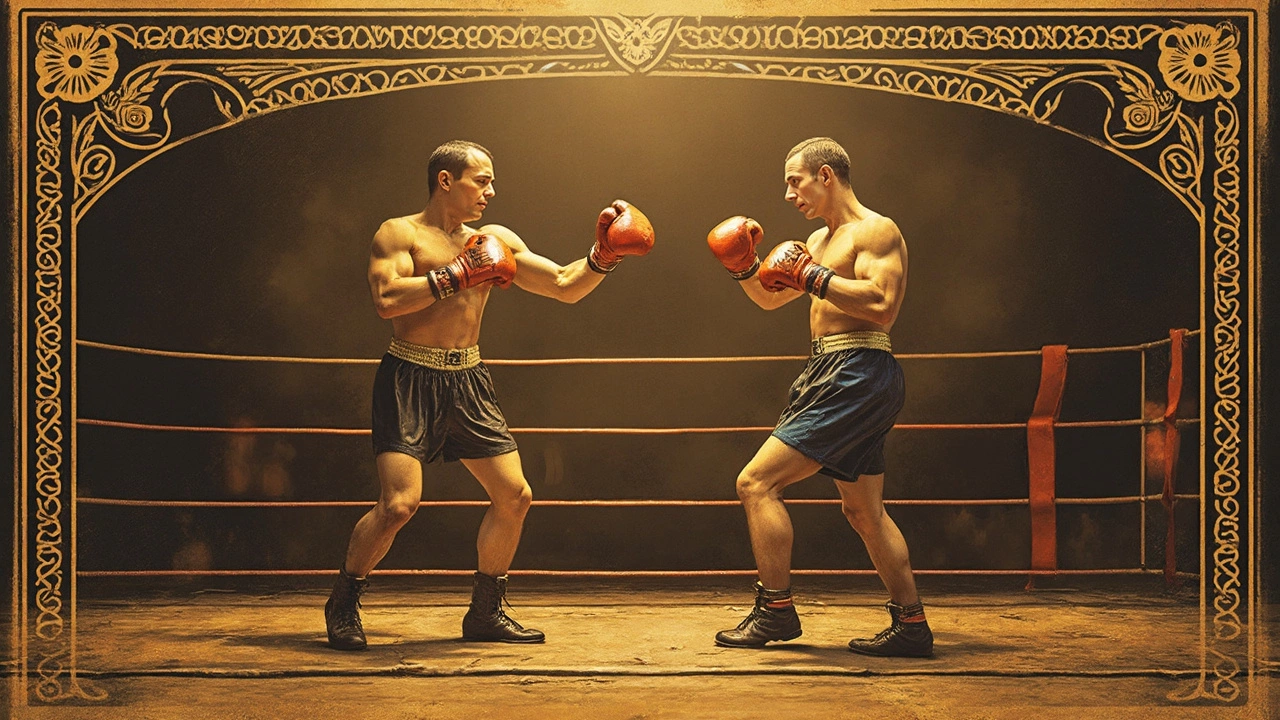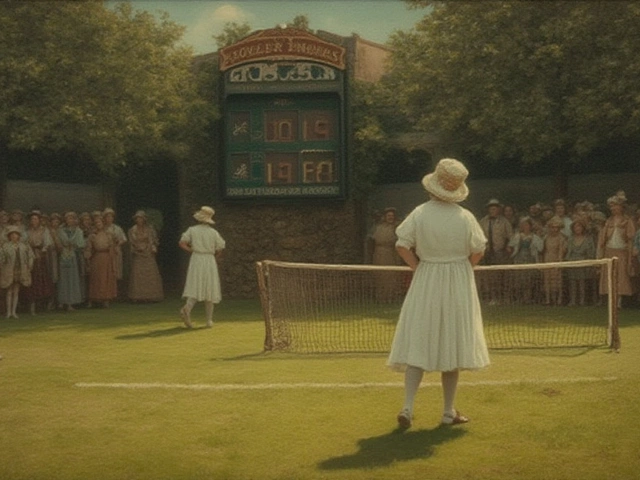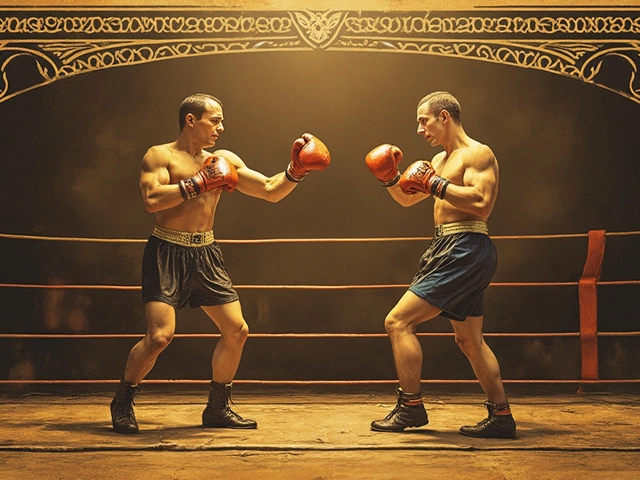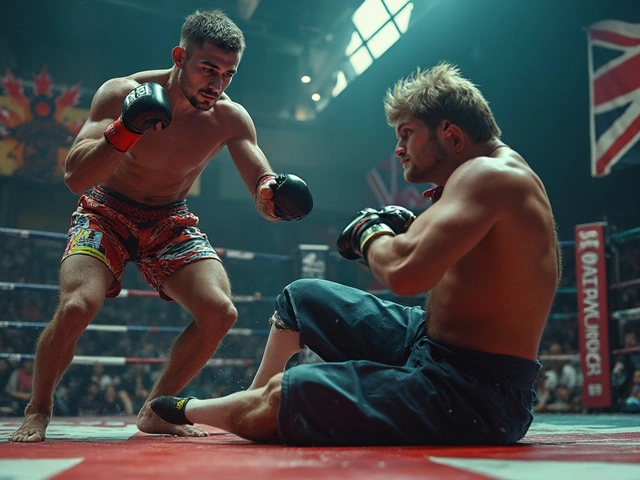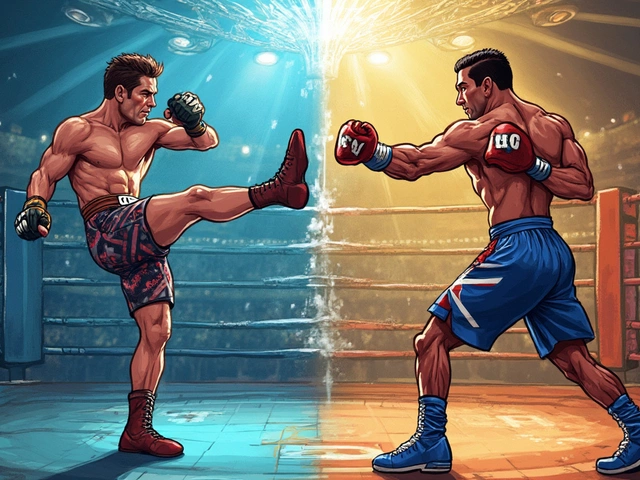Ever wonder why we call it a boxing 'match' and not a 'game'? You're not alone. This subtle difference in wording isn't just semantics; it actually tells you a lot about the sport. In boxing, the term 'match' is more than just tradition. It reflects the serious and competitive nature of the sport. Unlike a 'game'—which often suggests playfulness—a 'match' indicates an organized contest, each with specific rules and a focus on fairness and sportsmanship.
This wasn't always the case, though. Back in the day, boxing had a much less organized vibe. We're talking bare fists, informal bouts, and pretty much chaotic brawls. But as the sport evolved, so did its language. Boxing adopted structured rules, and with them came the term 'match,' echoing its new status as a serious and professional sport.
The Terminology Explained
When it comes to boxing, using the right words matters a lot. It's like in any other sport where precise terms make a big difference. So why do we use the term 'boxing match' instead of 'game'? Well, the word 'game' often brings to mind things that are playful and less formal—think of soccer or basketball pickup games. But boxing matches are anything but that.
In the world of boxing, a match represents a formal contest between two fighters. It's not just about throwing punches; there are specific rules, judges, and even a scoring system. The term 'match' recognizes the sport's organized and competitive nature. It's the seriousness of the event that distinguishes it from what you might consider a game. Unlike a tennis 'game,' where players can be more casual, a boxing match is about skill, strategy, and discipline.
These matches are typically governed by standardized rules, and fighters wear gloves and mouthguards according to strict regulations. Everything's calculated, from the weight classes to the number of rounds, and it's not just for show. This structure brings order and ensures safety and fairness, crucial elements that make boxing a highly respected sport.
Also, each match is carefully arranged. We’re talking about matchmaking—ensuring both fighters are fairly matched in terms of skill and weight. This isn't like in a game where anyone can just jump in and have a go. Matches are planned, and fighters train rigorously to prepare. All these aspects collectively make 'match' the right term to describe this intense and regulated sport.
Historical Context
To understand why we call it a boxing match, not a game, we need to rewind to the sport’s roots. Boxing has a storied past, stretching way back to ancient civilizations. The earliest records date to around 3000 BC in Egypt, where it was more of a brutal self-defense art rather than a sport.
Fast forward to Ancient Greece, and boxing made its Olympic debut in 688 BC. Back then, it wasn’t about the ring or points—fighters used to duke it out until one couldn’t stand, which gives 'match' a whole different meaning, right?
During the 17th and 18th centuries in England, boxing started to take on a more organized form. The emphasis was shifting to rules and fairness. James Figg, often considered the first champion, held informal bouts but was integral in establishing boxing schools, setting a tone for what was to come.
Come the 19th century, boxing was still a rough affair, but this is where the term 'match' solidified. The introduction of the Marquess of Queensberry Rules in 1867 brought significant changes: gloves, rounds, and referees. This transformative period is what nudged boxing from brawl to sport.
Look at the 20th century, and you've got boxing matches making global headlines. Icons like Muhammad Ali and Jack Dempsey fought under the bright lights, not just as athletes but as cultural heroes. These renowned matches contributed to the sport's refined image compared to the raucous early days.
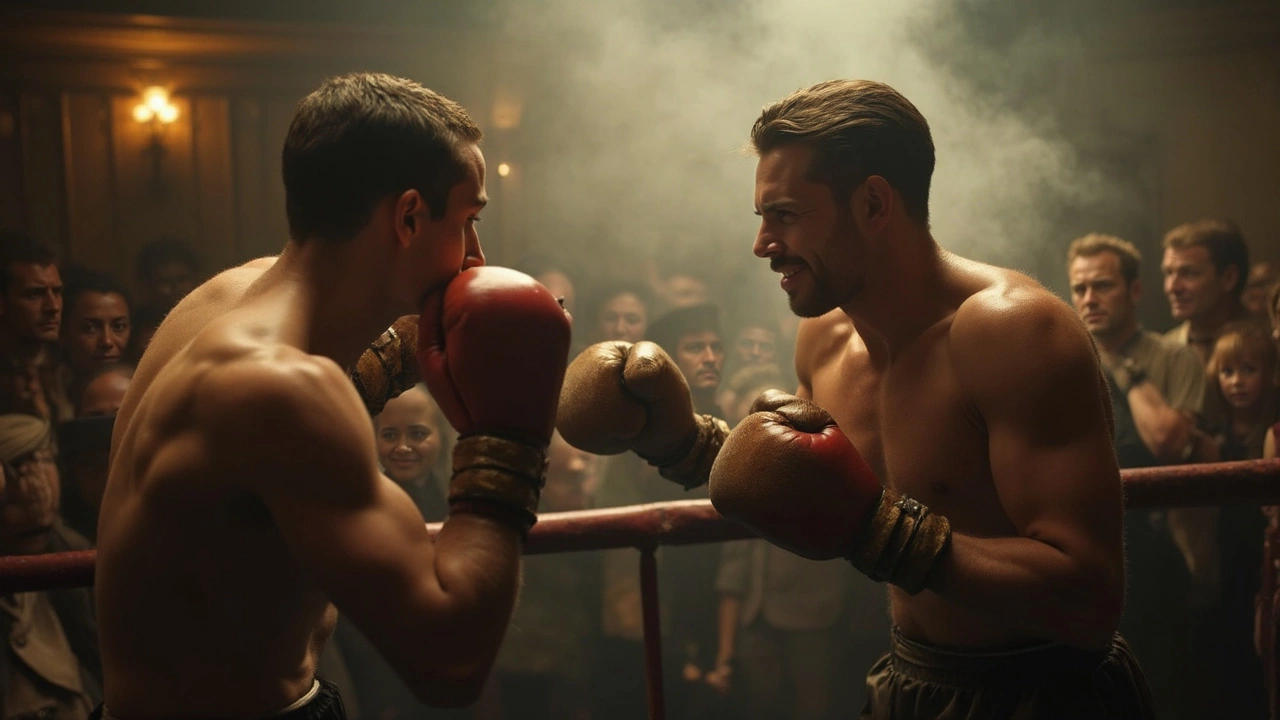
Cultural Significance
Boxing isn't just about throwing punches and dodging blows; it runs deeper into cultural narratives and identities. The sport has been a significant part of many communities combined with a rich heritage that often mirrors social changes. It's not surprising that some of the most celebrated figures in boxing history have also been icons of great social change. Think of Muhammad Ali—he wasn't just a boxing star but a cultural legend who took powerful stances on civil rights.
Moreover, when you look at the popularity of a boxing match in various countries, there's an interesting link. In places like Mexico and the Philippines, where boxing holds a special place in the culture, matches are massive events. An entire community comes together not just in support of their fighters but to experience a sense of unity. It's like a festival and emotional outlet all rolled into one.
There's also a historical element to consider. Back in the early 1900s, boxing provided a platform for immigrant populations in the United States to rise above their circumstances, offering not just financial rewards but a career path in a new world. Many of these early boxers became heroes in their communities, their matches seen as epic battles of pride and survival.
Mentalities around boxing have also shifted. While once considered brash and brutal, many now appreciate its strategic depth. This evolution reflects broader societal changes about competitiveness, discipline, and sportsmanship. As the culture around boxing continues to shift, it plays a critical role in redefining what it means to strive for excellence, both inside and outside the ring.
Modern-Day Implications
In today's world, calling it a boxing match rather than a game centers around respect and acknowledgment of the sport's intense nature. This isn't about playing around—it's about conditioning, skill, tactics, and a whole lot of grit. A lot goes on behind the scenes that many folks don't see. For instance, the way boxers train is anything but playful. We're talking rigorous schedules, strict diets, and a mental game that's as tough as their physical one.
Boxing matches are organized events with clearly defined rules and regulations, and they're sanctioned by various boxing commissions around the world. For example, the Nevada State Athletic Commission oversees many high-profile boxing matches in Las Vegas, ensuring fair play and safety for all participants. This professional oversight transforms what was once a backyard brawl into a recognized global sport.
Also, the terminology matters in how the sport is marketed and broadcasted. Networks and sponsors often lean on the term match to highlight a premium, competitive spectacle, which draws more viewers and breaks more pay-per-view records.
The rise of sports data analytics has further emphasized this shift. Take a look at any major boxing event today, and you'll find analysts breaking down every jab, round, and punch ratio. For instance, many fights now come with detailed analytics showing punch accuracy or how a fighter fares in each round. Here's a quick peek at some typical stats:
| Statistic | Value |
|---|---|
| Punch Accuracy | 45% |
| Rounds Won | 7 out of 12 |
| Total Punches Thrown | 250 |
So when tuning into a boxing match, remember, it's much more than just a fight; it's a complex dance of strategy, skill, and sheer determination. Next time someone asks, “Is it a game or a match?” you’ll know exactly why words matter.
